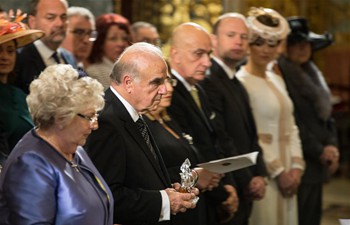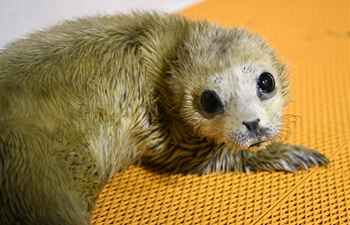WARSAW, April 5 (Xinhua) -- A two-day meeting of defense ministers from nine central and eastern European countries finished here on Friday, during which the ministers held high-level discussions on common defense problems and the strengthening of NATO's eastern flank.
The second gathering of the so-called "Bucharest Nine", known as B9, includes defense ministers from Poland, Hungary, the Czech Republic, Slovakia, Bulgaria, Romania, Lithuania, Latvia, and Estonia.
The two-day event in Poland falls on the 70th anniversary of the signing of the Washington treaty which established NATO on April 4, 1949.
Speaking prior to the meeting, the Polish Minister of National Defence Mariusz Blaszczak said: "Over the years, we have moved from new NATO members to states without which one cannot imagine the alliance today."
The topics during the talks include the prospects for cooperation within the framework of EU initiatives, the European Defense Fund, and military mobility.
In mid-March, Poland marked two decades as a NATO member and is known within the group as one of its keenest supporters. Warsaw views the organization as an embodiment of its transatlantic bond and vital for security.
The formula of consultations of the B9 countries was inaugurated back in 2014 to create a platform of dialogue and cooperation between NATO's eastern flank countries.
The following year, at a mini-summit in Bucharest, the countries of central and eastern Europe signed a joint declaration to combine efforts to ensure a "strong, credible and balanced" NATO military presence in the region.
Just last week, Warsaw confirmed that it planned to open a storage facility in Poland for military equipment belonging to the United States military.
Furthermore, Poland recently inked an agreement to purchase mobile rocket launchers from the U.S., and in 2018, signed a 4-billion-dollar contract for the American-built Patriot anti-missile system.
Celebrations marking the NATO birthday have been muted, given the organization is going through a period of severe strain, as U.S. President Donald Trump continues to pressure some members of the alliance to increase spending.
NATO's European allies spent more on defense for a second consecutive year in 2017, but the majority of them still failed to meet the target of spending 2 percent of their GDP on defense.













